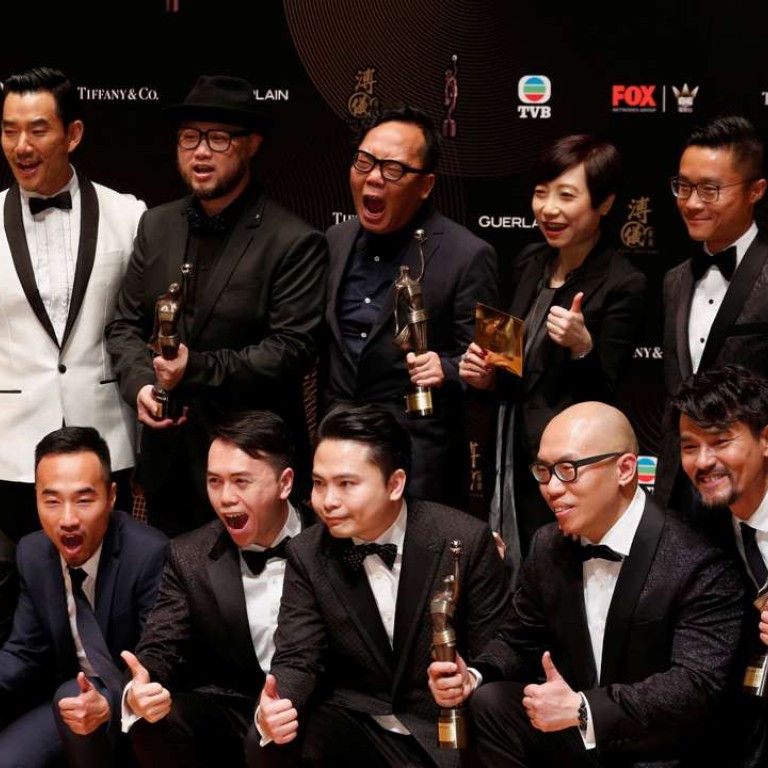
Why so sensitive? A closer look at Trivisa, the Hong Kong Film Awards best picture banned in China – just like Ten Years
Its directors wouldn’t acknowledge crime thriller’s political undercurrents ahead of its release, and were eyeing a cinematic run in China, so what did censors object to? A director helming part of banned film Ten Years, perhaps
But unlike the case of the popular but controversial 2016 winner Ten Years , a dystopian sociopolitical fable that audaciously envisioned the impact of the Chinese Communist Party on the Hong Kong way of life, China’s ban on 2017 best picture Trivisa has been met more with bemusement than surprise in its home city.
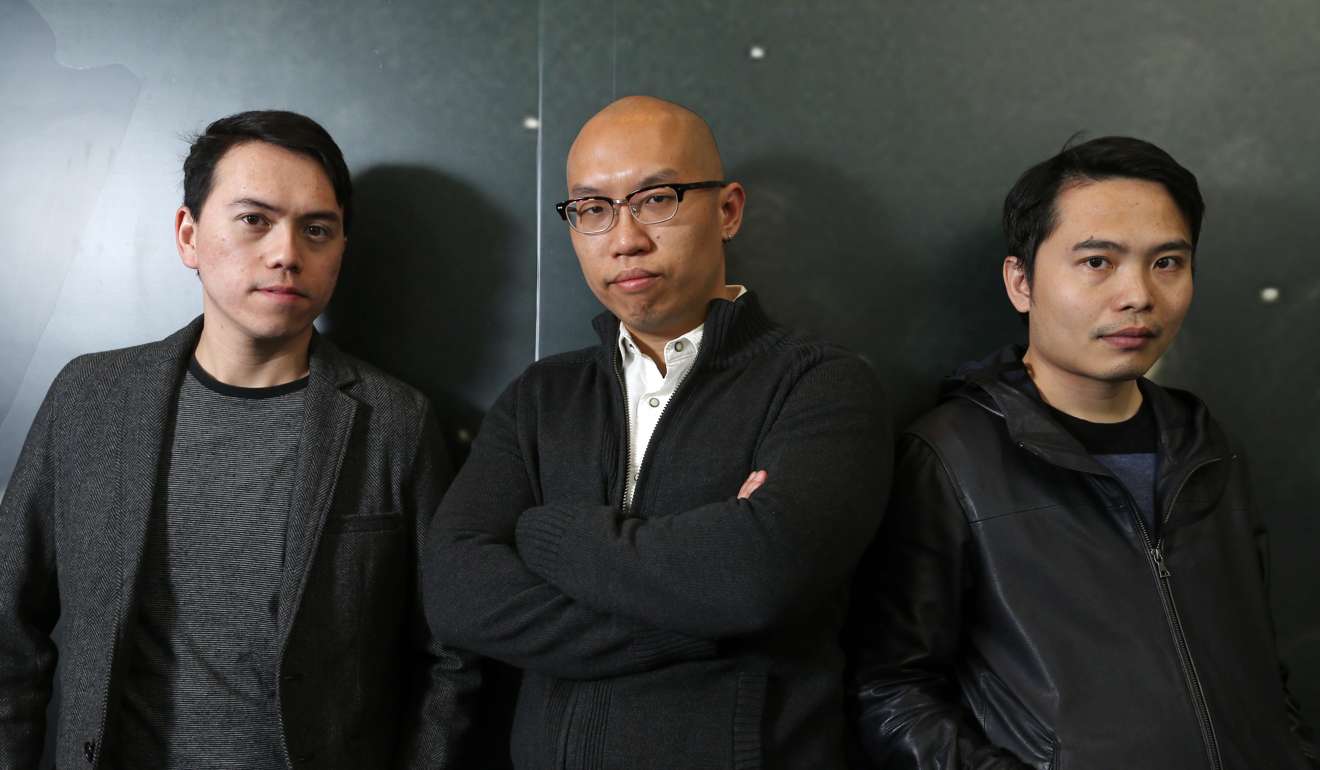
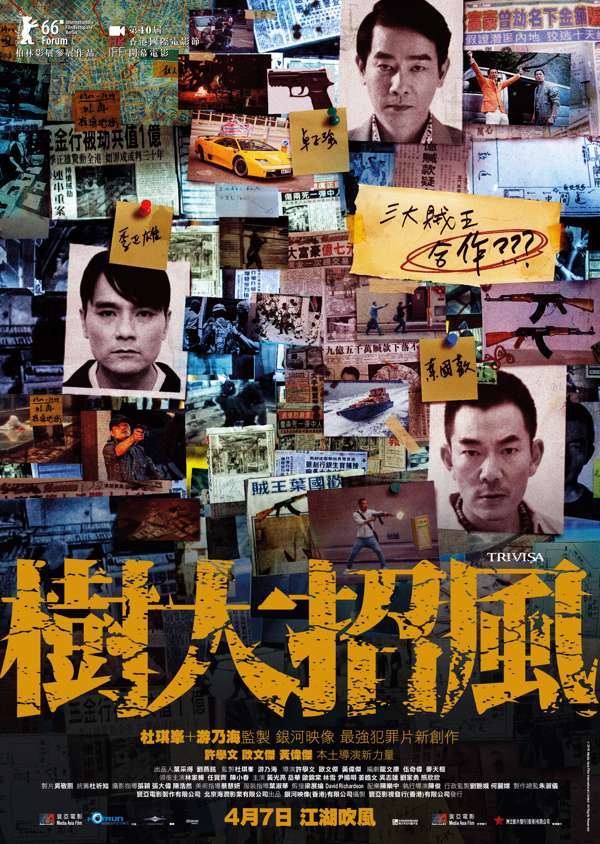
Another film in the running, Weeds on Fire , which won the awards for best new performer and best original song, is bookended by footage shot in Hong Kong’s Admiralty district during 2014’s “umbrella movement” protest sit-in, and suffered a similar fate.
The China ban on Trivisa is believed to be due in part to the fact Jevons Au Man-kit is one of Trivisa’s trio of young directors. Having directed one of the five short films that comprised Ten Years, Au (along with outspoken actor-producer Chapman To and pro-democracy musicians Denise Ho and Anthony Wong Yiu-ming, among others) has been put on what many in the film and entertainment industries suspect is an unofficial blacklist drawn up by Chinese censors.
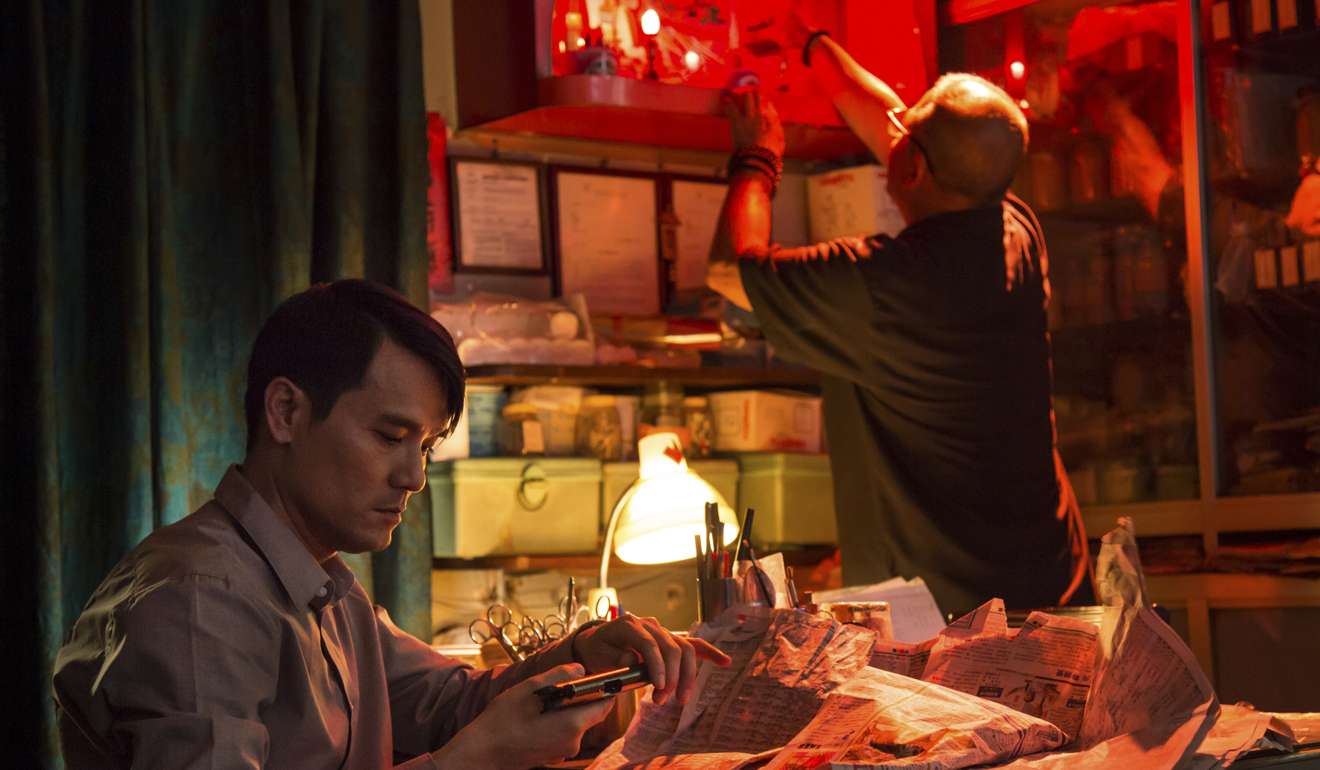
While the ban on Trivisa gives credence to the existence of such a blacklist, it also appears to confirm how sensitive the Chinese censors are when it comes to content they do not like.
The short film Au contributed to Ten Years, called Dialect, sees a middle-aged taxi driver become increasingly alienated from his son, and unsuited for his own job, because he doesn’t speak Putonghua well. It was a hardly sensational take on Hong Kong’s gradual integration with China, and it would seem way out of proportion to impose an indefinite ban on a director for that alone.

For viewers unfamiliar with the political climate of Hong Kong-China relations, Trivisa may come across as just another fatalistic crime thriller from Hong Kong auteur Johnnie To Kei-fung’s Milkyway Image production house; they would certainly not see it as a production so controversial that China couldn’t wait to wipe it off Chinese cyberspace.
Trivisa, produced by Johnnie To and Yau Nai-hoi, and co-directed by emerging directors Au, Frank Hui Hok-man and Vicky Wong Wai-kit, is a 1990s-set story about the crisscrossing destinies of three notorious criminals – loosely based on real-life figures Yip Kai-foon, Kwai Ping-hung and Cheung Tsz-keung – before fate catches up with them on the eve of the 1997 handover.
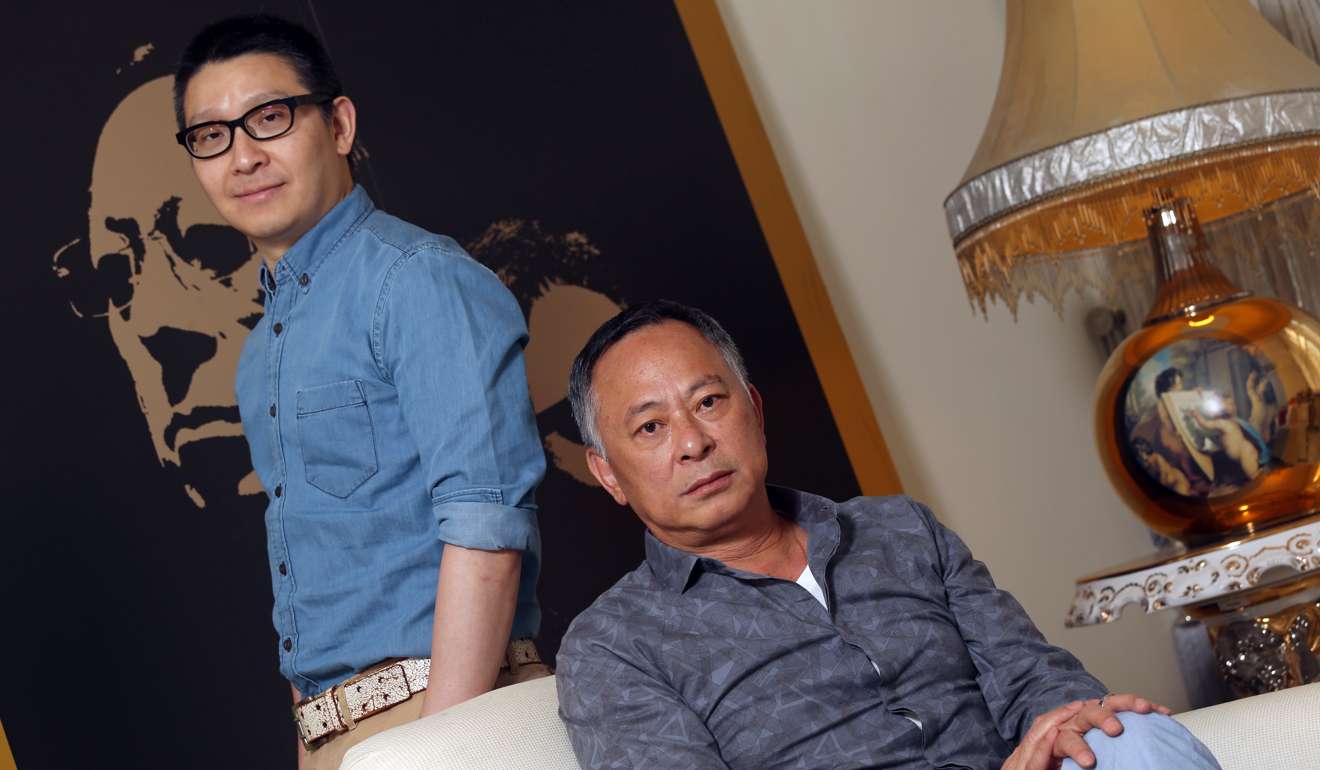
The three larger-than-life criminals are played by Gordon Lam Ka-tung, Richie Jen Hsien-chi and Jordan Chan Siu-chun. Both Lam and Jen were nominated for best actor at the Hong Kong Film Awards; Lam ended up winning his first such honour on Sunday.
While the film is bookended by news footage from 1997, complete with mentions of the Sino-British Joint Declaration and the pledge of 50 unchanged years for Hong Kong, its narrative is ostensibly apolitical.
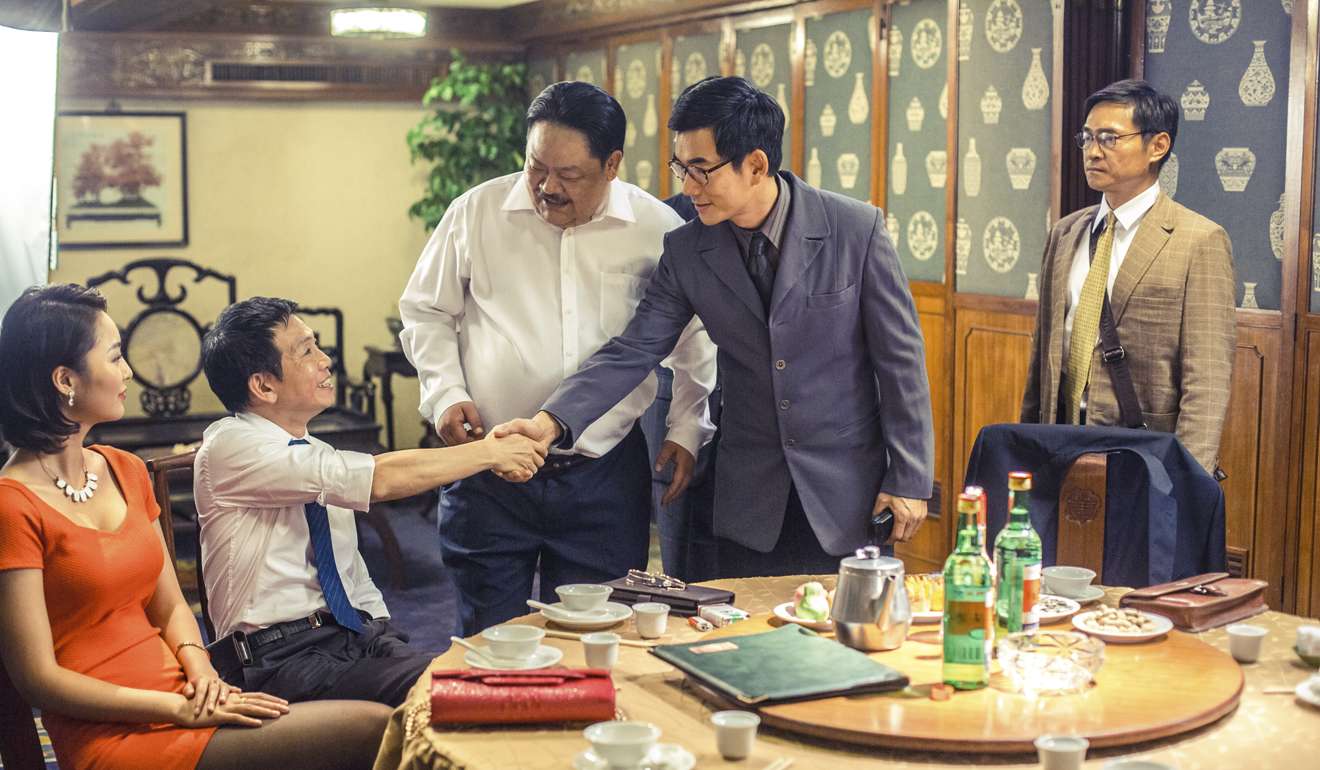
The most sensitive part of the film may be Jen’s portrayal of the character Yip Kwok-foon, who gives up robbing banks to smuggle electrical goods across borders to stay with the competition – only to see his ego take severe hits in front of the corrupt Chinese officials he must bribe. Given Chinese President Xi Jinping’s current anti-corruption campaign, this is hardly a taboo subject today.
In fact, I would go so far as to suggest that none of those involved in the making of Trivisa began by envisioning it as a taboo project. When I talked to the film’s three directors ahead of its cinematic release in April 2016, they would not openly acknowledge the film’s political undertone, and were indeed rather hopeful that it would eventually secure a theatrical release in China.
For all that Trivisa appears to glorify crime, it’s reasonable to believe that the production team always had their eyes on a China release. For starters, [S poiler alert] none of the criminals escape the long hand of the law – a narrative that, whether intentionally or by chance, complies with Chinese censors’ principle that bad guys must be punished by the end of a film. [End of spoiler]
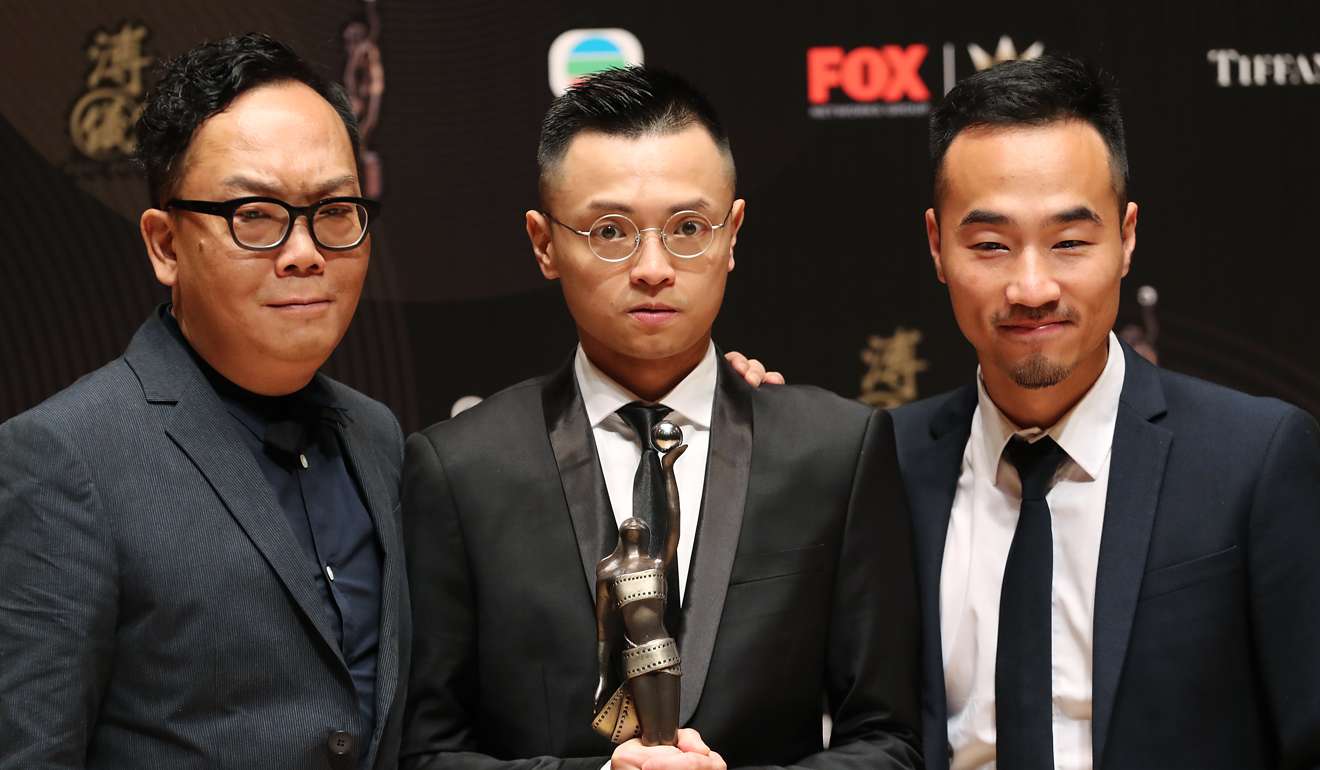
You only need to look at the casting of actor Jordan Chan, a member of the Huizhou Committee of the Chinese People’s Political Consultative Conference, to know that Trivisa was not made to offend China in any way.
Although it’s now hard to pinpoint when the censorship narrative shifted and Trivisa came to be regarded by China as an inappropriate movie, its dominance at last night’s Hong Kong Film Awards will only further provoke those incensed by Ten Years’ best picture win a year ago.
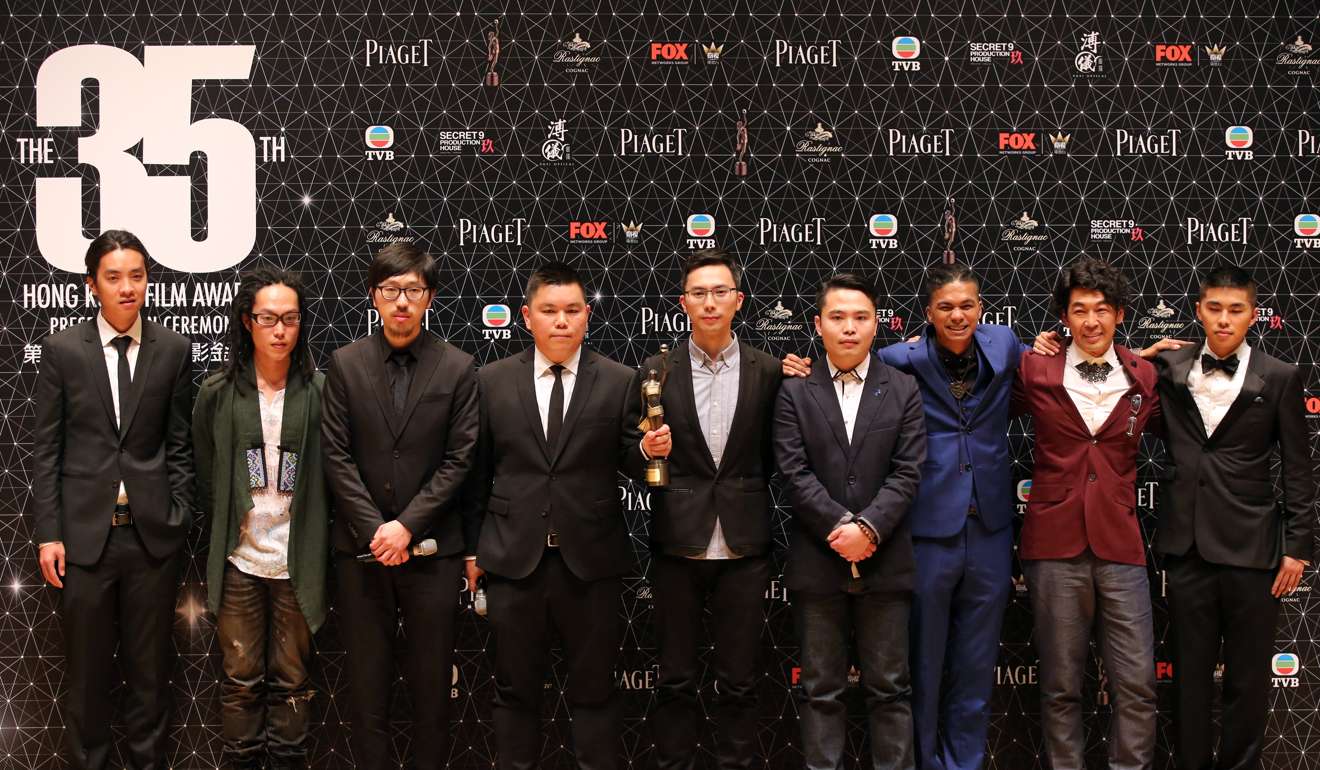
For those Chinese companies who signed up to cover the awards, it may have felt like a slap in the face seeing Trivisa – the sixth-most-nominated film on the night – win in five of the six categories it was nominated in and become the night’s biggest winner. Soul Mate was the front-runner with 12 nominations, followed by 10 for Cold War 2 , and eight each for The Mermaid , Weeds on Fire and Mad World .
It is impossible not to marvel at the Hong Kong Film Awards judges’ resistance to political interference throughout the saga. The 2017 ceremony, which inadvertently made for disjointed viewing in China, was still attended by renowned patriot Jackie Chan and top Chinese actresses Vicki Zhao Wei and Zhang Ziyi, even though none of them was directly involved in any of the films in the running for awards.
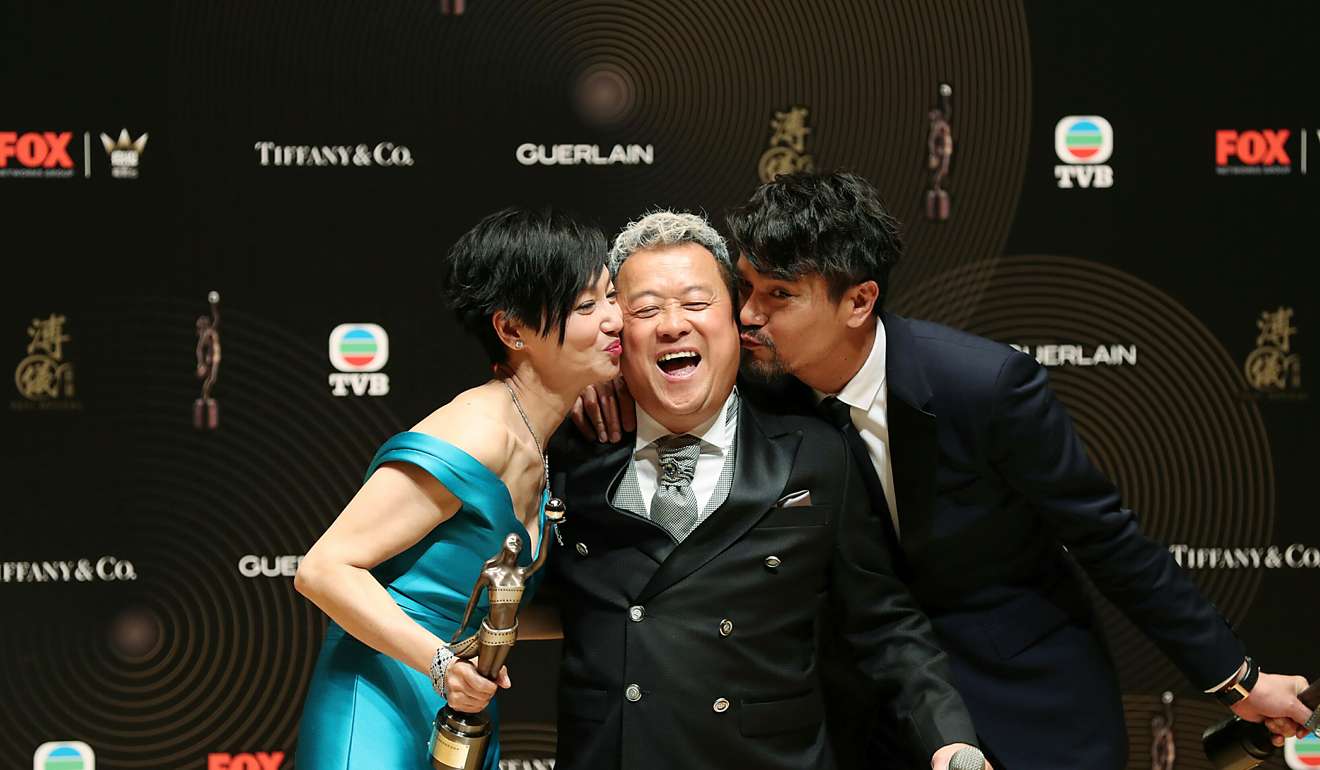
The full list of Hong Kong Film Awards winners:
Best film: Trivisa
Best director: Frank Hui, Jevons Au, Vicky Wong (Trivisa)
Best screenplay: Trivisa
Best actor: Gordon Lam (Trivisa)
Best actress: Kara Wai ( Happiness )
Best supporting actor: Eric Tsang ( Mad World )
Best supporting actress: Elaine Jin (Mad World)
Best new performer: Tony Wu ( Weeds on Fire )
Best cinematography: See You Tomorrow
Best film editing: Trivisa
Best art direction: See You Tomorrow
Best costume and make-up design: The Monkey King 2
Best action choreography: Operation Mekong
Best original film score: Soul Mate
Best original film song: Weeds on Fire
Best sound design: Cold War 2
Best visual effects: The Monkey King 2
Best new director: Wong Chun (Mad World)
Best film from China and Taiwan: Godspeed
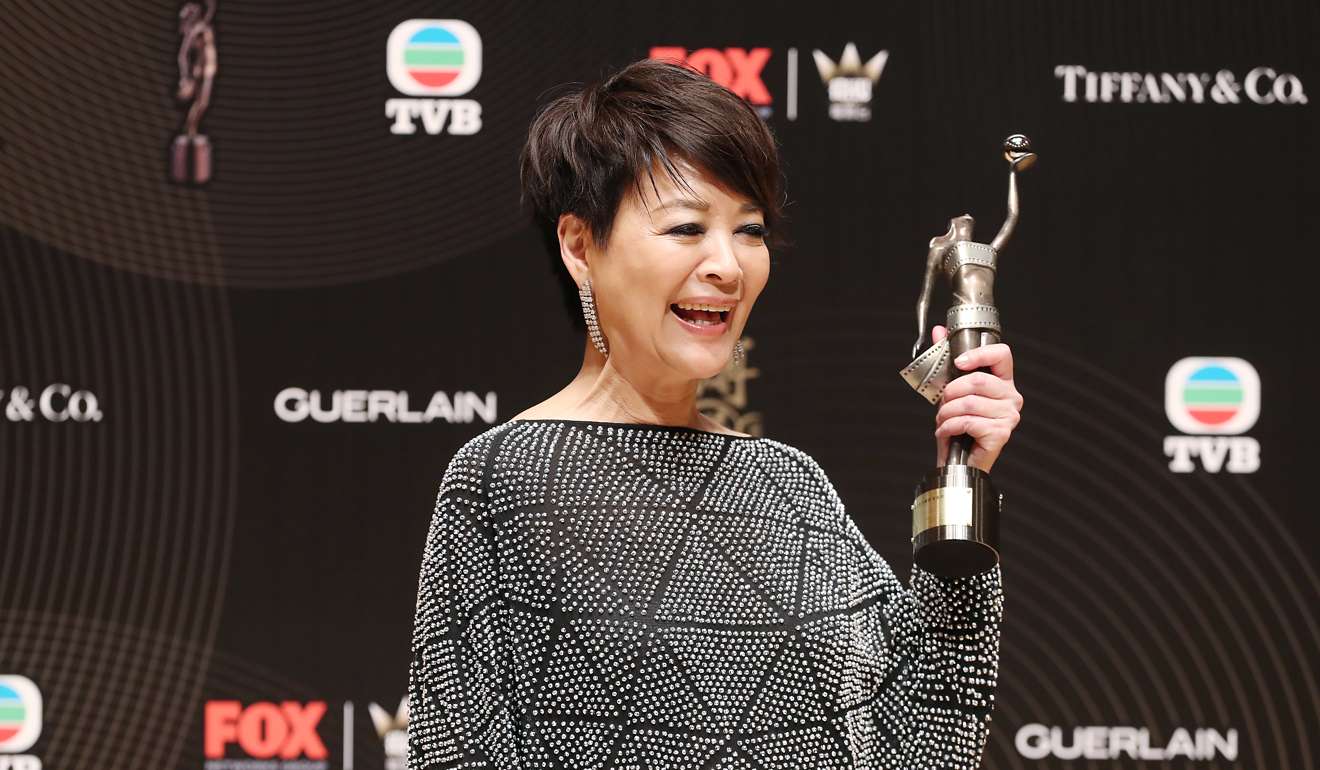
Want more articles like this? Follow SCMP Film on Facebook

